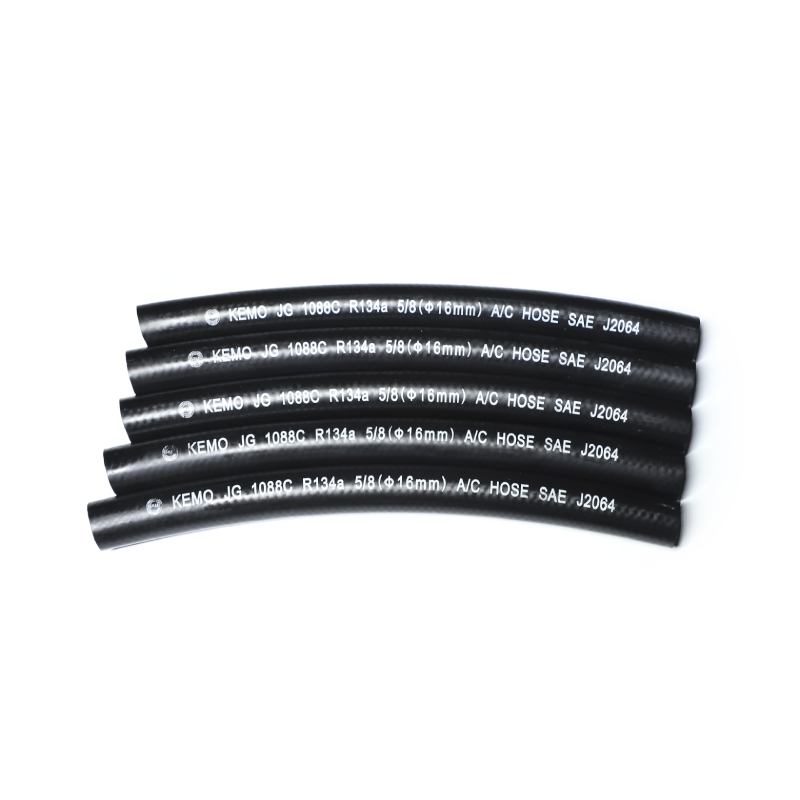ethanol rated fuel line
Dec . 16, 2024 02:06 Back to list
ethanol rated fuel line
Understanding Ethanol-Rated Fuel Lines Importance, Types, and Maintenance
As the automotive industry rapidly evolves towards more sustainable options, the use of biofuels, particularly ethanol, has become increasingly prevalent. Ethanol, a renewable fuel typically derived from corn or sugarcane, is often blended with gasoline and utilized in various vehicles. For optimal performance and safety, understanding the significance of ethanol-rated fuel lines is essential for vehicle owners and mechanics alike.
The Importance of Ethanol-Rated Fuel Lines
Fuel lines are critical components of any vehicle's fuel system, primarily responsible for transporting fuel from the tank to the engine. Ethanol is known for its solvent properties, meaning that it can dissolve certain materials and substances that are commonly found in traditional fuel systems. The use of standard fuel lines in an ethanol-blended environment can lead to degradation, which may result in leaks, reduced performance, or complete system failure.
Ethanol-rated fuel lines are specifically designed to withstand ethanol's corrosive nature. They are made from materials such as synthetic rubber or thermoplastic elastomers that can resist the effects of ethanol and maintain their integrity over time. Using inappropriate fuel lines can lead to significant issues, including fuel contamination and potential fire hazards.
Types of Ethanol-Rated Fuel Lines
When considering ethanol-rated fuel lines, it’s important to recognize the various types available
1. Rubber Fuel Lines While traditional rubber fuel lines can handle gasoline, not all are suitable for ethanol. Ethanol-rated rubber fuel lines are specially formulated to resist degradation from ethanol. They can handle both low and high ethanol blends, making them a reliable choice for many vehicles.
2. Polyethylene Fuel Lines These lines are made from a high-density polyethylene that is resilient against ethanol blends. They are lightweight and resistant to cracking, making them ideal for modern vehicles that prioritize weight savings.
3. Stainless Steel Fuel Lines For those looking for the highest durability, stainless steel lines provide excellent resistance against ethanol’s effects. They are corrosion-resistant and long-lasting, though they may require additional fittings and connections due to their rigidity.
ethanol rated fuel line

4. PTFE Fuel Lines Polytetrafluoroethylene (PTFE) lines are another great option for high-performance applications. These lines can endure extreme temperatures and are fully compatible with ethanol blends, ensuring a secure and leak-free connection.
Maintenance of Ethanol-Rated Fuel Lines
Maintaining ethanol-rated fuel lines is crucial for ensuring the longevity and reliability of your fuel system. Here are some key maintenance tips
1. Regular Inspections Periodically check fuel lines for any signs of wear, such as cracks, hardening, or leaks. This is particularly important in older vehicles that may have originally been equipped with non-ethanol-compatible lines.
2. Proper Installation When replacing fuel lines, ensure that they are installed correctly according to the manufacturer’s specifications. Improper installation can compromise the integrity of the fuel system, leading to potential failures.
3. Use Quality Fuel Always choose high-quality ethanol blends from reputable suppliers. Poor-quality fuel can introduce contaminants that may harm the fuel lines over time.
4. Store Properly If the vehicle will be stored for an extended period, consider using a fuel stabilizer to prevent the ethanol from absorbing moisture, which can lead to phase separation and damage to the fuel lines.
5. Professional Help If you suspect any issues with your fuel lines or system, consult a professional mechanic. They can provide comprehensive inspections and make necessary repairs or replacements.
Conclusion
In an era where environmental sustainability is key, the transition to ethanol-blended fuels is an essential step for many vehicle owners. Understanding the role and requirements of ethanol-rated fuel lines is imperative to ensure that your fuel system operates efficiently and safely. With proper maintenance and awareness, you can enjoy the benefits of ethanol as a cleaner alternative fuel while safeguarding your vehicle's performance and longevity.
